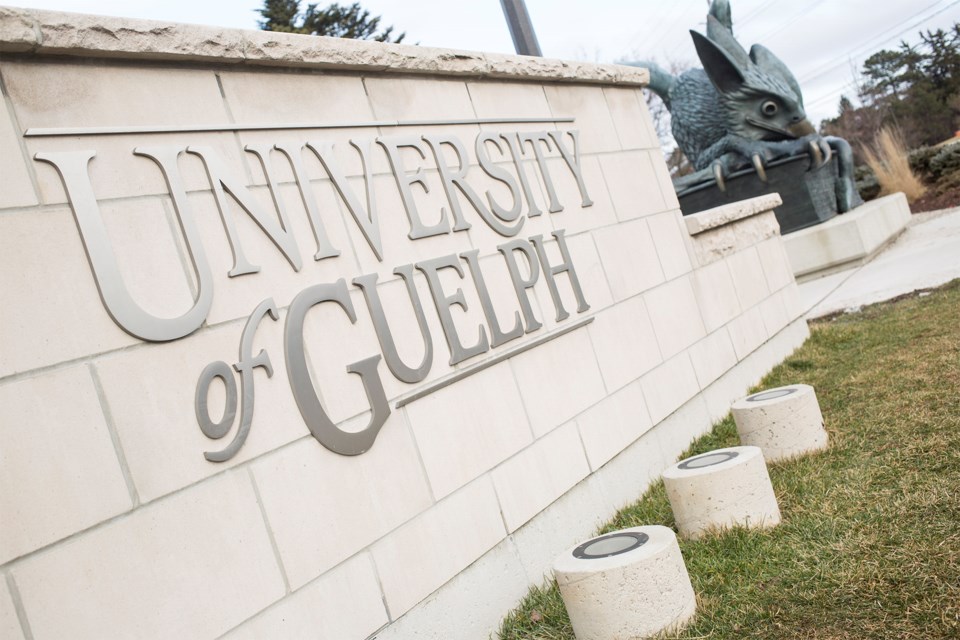The following article was provided by University of Guelph News Services.
University of Guelph researchers have received $230,000 to develop potential COVID-19 vaccines under the province’s Ontario Together investment to advance research to combat the pandemic.
Pathobiology professor Byram Bridle said he believes the team’s vaccine platform – adapted from U of G research into vaccines as cancer therapies — will be a leading candidate among the roughly 120 Canadian projects currently racing to develop an effective vaccine against the pandemic virus.
“We have been focused on cancer for years, but this collaboration shows the flexibility of the technology we have at Guelph,” he said. “We can rapidly apply cancer technology and move it over to infectious disease.”
The team received a one-year, $230,000 grant this week in COVID-19 rapid research funding from the Ontario government to test four vaccines already developed in university labs. Nearly a dozen researchers are involved, including Bridle and co-principal investigators Sarah Wootton and Leo Susta, also faculty members in the Department of Pathobiology.
All three researchers’ labs have been approved for critical research status, allowing them to conduct studies while observing pandemic safety protocols.
Following immunological and safety testing at U of G, the researchers expect to share their top two vaccine candidates in about eight months with collaborators led by Darwyn Kobasa, head of respiratory virus pathogenesis and therapeutics at the National Microbiology Laboratory (NML) in Winnipeg, for efficacy testing.
Bridle said he hopes to see a viable vaccine based on the technology ready for Health Canada approval in 2021.
Their vaccines target a protein found on the surface of the coronavirus. After ferrying the protein into mice using a common adenovirus and an avian virus that normally infects chickens, they will measure immune responses in two ways.
They plan to look for levels of specific antibodies that recognize the protein and prevent the virus from entering lung cells. For any virus that does get past the body’s defences, they will also monitor production of T cells that normally fight off infection.
Out of four potential vaccines, they plan to send the top two candidates to the NML for further testing. The team will work with Health Canada to ensure “fast tracking” for any potential vaccine to be released to the public.
Bridle said Canadian researchers are working on an estimated 120 vaccines for the coronavirus. He said he’s confident the U of G approach will be among the top candidates.
The technology uses a proven testing platform of viruses already used to develop cancer vaccines. By using live vectors to deliver the vaccine directly into cells, he said, the approach ensures an appropriate immune response. Other approaches using a killed virus may be developed more quickly, he said, but many of those vaccines will fail to trigger the body’s proper immune response.
Bridle, Wootton and Susta have collaborated on using viruses in cancer therapy, including one of the viruses that they are now testing for a possible coronavirus vaccine.
He said that unlike other “one-off” approaches to developing a COVID-19 vaccine, the team’s platforms can be adapted to develop vaccines for future versions of a coronavirus. That means future vaccines might be made more quickly and cheaply, giving Canada a foundation for subsequent vaccine development.
“With these vaccine vectors, we designed them to be ‘plug and play.’ You can put any gene into the vectors within two weeks. It could be a target protein in a cancer cell, but it could just as easily be a protein on a virus.”
“I would like to congratulate Byram Bridle and the whole team at the University of Guelph on receiving this project approval through the COVID-19 Rapid Research Fund,” said Kitchener-Conestoga MPP Mike Harris. “The Ontario government is committed to supporting our world-class researchers and institutions in their fight against the current global pandemic.”
Malcolm Campbell, vice-president (research), said, “This very foresighted, incredibly smart support from our provincial government is outstanding.”
By combining three U of G research teams, he said, the project “will in turn power discoveries and fuel innovations aimed at creating a vaccine against SARS-CoV-2, the virus underpinning the COVID-19 pandemic. In doing so, our government’s intelligent investment will ensure that this University of Guelph research will address the challenges of this pandemic, as well as any coronavirus diseases that may emerge in the future.”
Overall, the province has committed $20 million through its COVID-19 Rapid Research Fund – part of the Ontario Together fund — for research to help combat the pandemic.
The team has also received support from the Department of Pathobiology, the Ontario Veterinary College and the University’s COVID-19 Research Development and Catalyst Fund.
Noting that the team brings together experts in viral immunology, virology and pathology, Bridle said the group responded rapidly to the provincial government’s call for research proposals. “We have a strong history of working on developing cancer vaccines. As soon as the call came out for COVID-19 vaccines, we realized we have potential vaccination strategies.”
